|
Financial Inclusion and Sustainable Development: Achievements and Services of Banque Misr”: Insights from the Banque Misr Conference
Written By:Hana Sherief Elbadry
In recognition of the critical importance of Financial Inclusion and in
alignment with Egypt's Vision 2030 for its Sustainable Development Strategy, the
Faculty of Economics and Political Science hosted Mr. Tamer Abdel Fattah Hamouda,
Director of Banque Misr's Cairo University branch, and Mr. Hamada Abdel Rahman,
Sales and Customer Service Manager at Banque Misr, for a seminar titled
"Financial Inclusion and Sustainable Development: Achievements and Services of
Banque Misr." The event took place in Sawiris Hall on Tuesday, April 30, 2024.
Dr. Marwa Mohamed Shibl Biltagy, Vice Dean of the College for
Postgraduate Studies and Research and the seminar's moderator, commenced
the event by extending a warm welcome and words of gratitude to the
attendees. She then highlighted the historical background of Banque Misr,
which was established in 1920 by the pioneering economist Talaat Harb
Pacha. Dr. Biltagy noted that Banque Misr is the first Egyptian bank to
be entirely founded and owned by Egyptians. Its inception aimed to
bolster economic growth, propel the nation towards development, and
reinvigorate the business landscape following the British occupation.
Mr. Tamer Hamouda emphasized that Banque Misr is truly a bank for all
Egyptians, boasting a large network of branches spread across the entire
country. He praised the presence of a branch at Cairo University, noting
that it provides numerous banking services to university students,
saving them considerable time and effort. Mr. Hamouda also announced the
availability of the Meeza card, now offered free of charge to all
students, functioning as an electronic wallet. He assured that every
product of the bank benefits both the bank and the customer, countering
the common misconception that the bank is the sole beneficiary in
banking transactions.
Mr. Hamada elaborated on the services designed for various societal
segments, including savings accounts, current accounts, the "Super Cash"
account, the "Al Mongez" account for freelancers, various types of
deposit certificates, and the "Hewalty" account for foreign currency
transfers. Additionally, the bank offers numerous financial services
that align with the imperative of financial inclusion and the reduction
of cash dependency in Egypt. These services include the ability to
obtain the prepaid Meeza card, exempt from issuance fees, as well as
subscribing to the BM Wallet, Banque Misr's electronic wallet, and the
Banque Misr Online platform.
Regarding the bank's profitability, Mr. Hamada stated that it stems
from "providing service for service," referring to loans granted to
businesses and individuals. He explained that interest rates start at
2.7% for loans designated for small, medium, and large enterprises,
while the interest rates for individuals vary based on their income
levels. He also recommended taking advantage of the facilities offered
by the bank to university professors, including streamlined procedures
for obtaining loans and extending the retirement age to 65.
Additionally, the bank provides financing for wedding expenses and car
loans to all segments of society, in support of the principle of
financial inclusion.
Mr. Tamer was then asked about treasury bills and investment funds. He
explained that investing in treasury bills starts at 25,000 EGP and they
can be purchased from any Banque Misr branch. He proudly noted that
Banque Misr is one of the leading providers of investment funds in the
country. He highlighted the bank's prominence in offering investment
funds, particularly the “Day by Day” Mutual fund, which provides its
holders with a daily cumulative return, as well as other funds such as
Islamic funds and the "Sandouk Al Umr." He emphasized the importance of
monitoring fund prices daily to choose the best investment, noting that
they vary according to stock market fluctuations. He also mentioned that
the bank provides free credit cards to all customers, with a repayment
period of one year. Mr. Tamer stressed that the bank strives to build a
strong, trust-filled relationship with customers, walking together on
the path of sustainable development.
Finally, Mr. Tamer responded to Dr. Marwa's inquiry about student loans
by acknowledging that, in the past, they were granted to the student's
guardian (usually their parents) and admitted that this approach was
impractical as the repayment period was limited to no more than 10
months. He affirmed that there are ongoing efforts to improve and
develop student loan offerings to increase their benefits and enhance
accessibility.
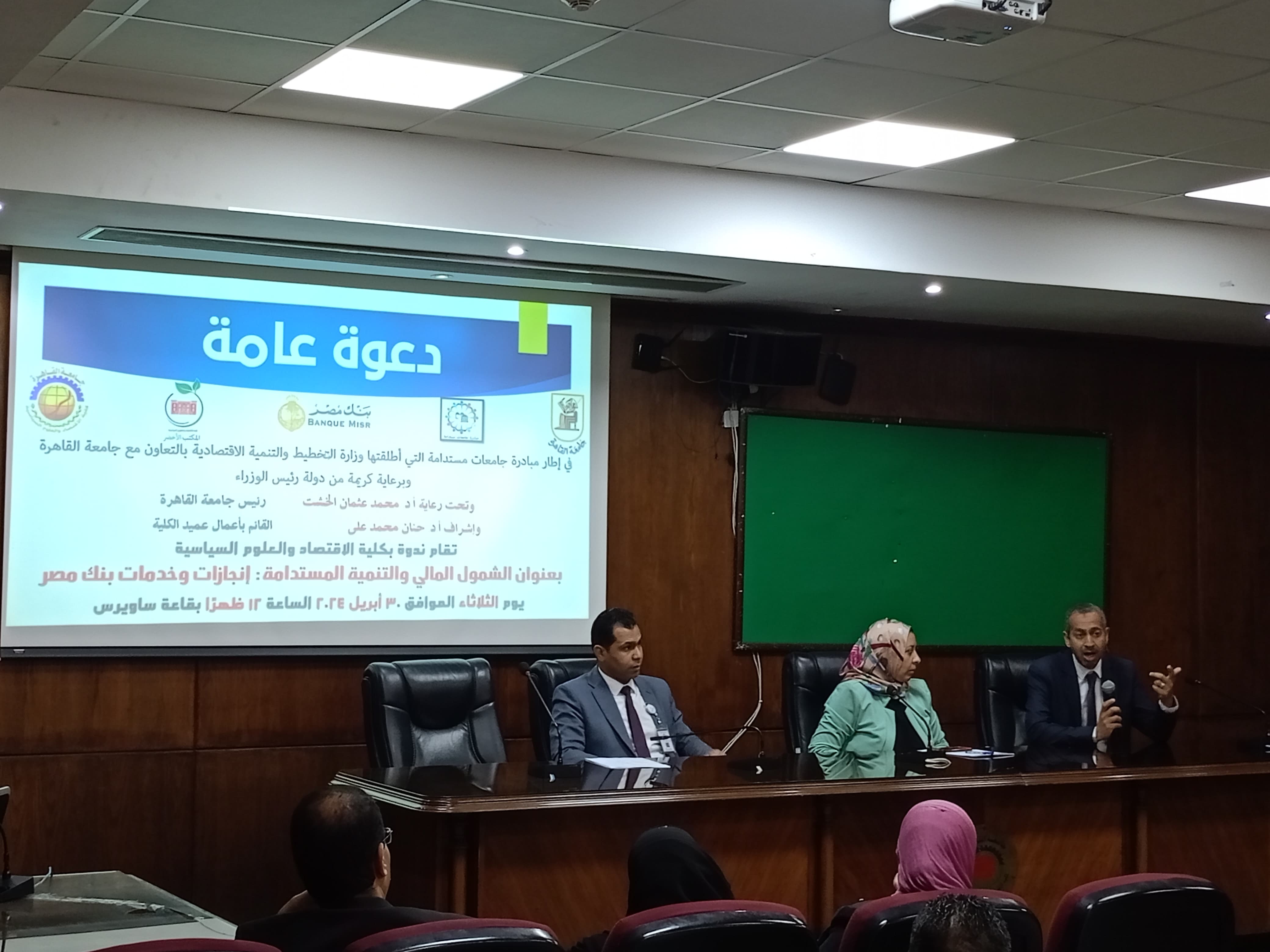
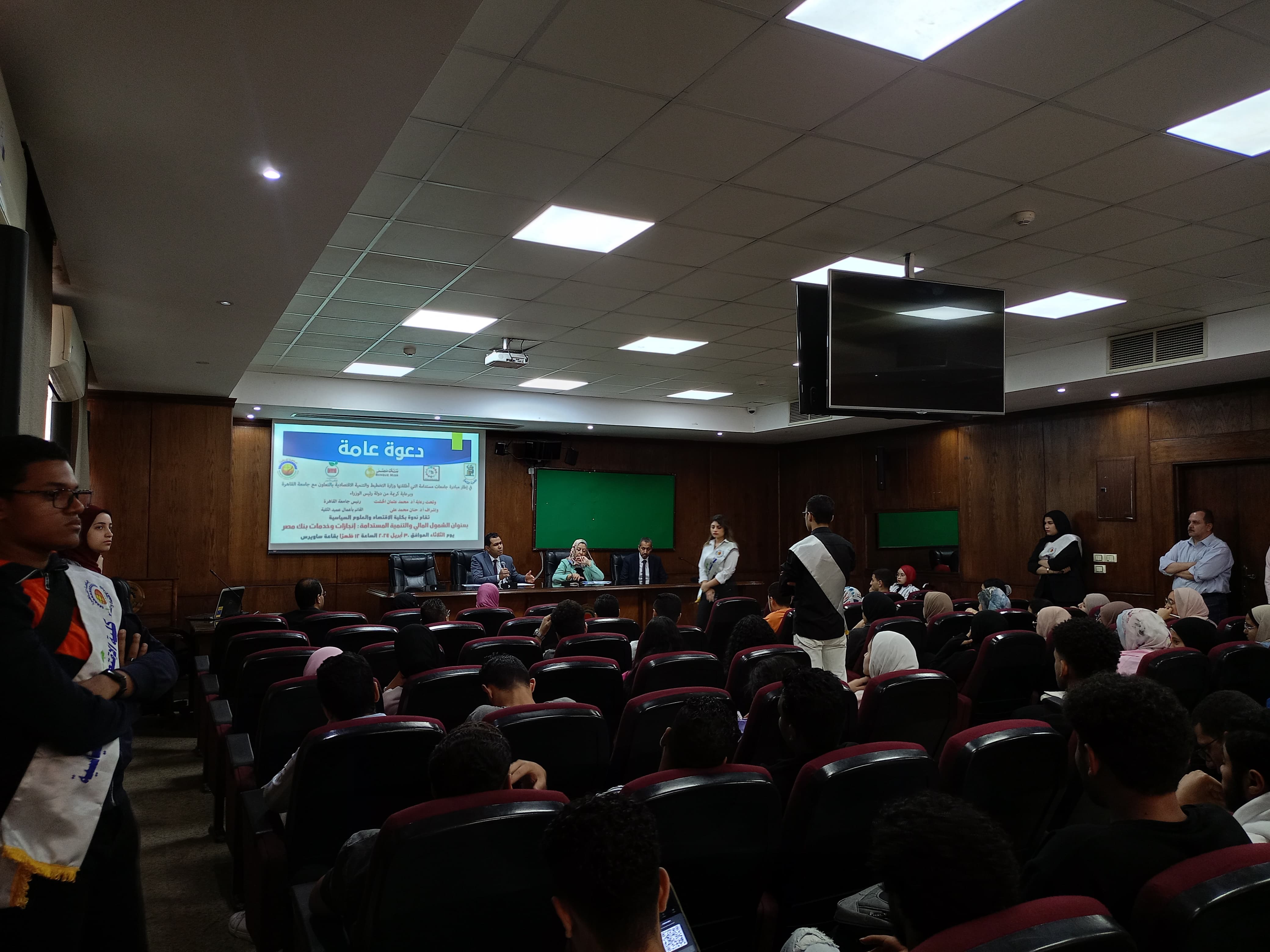
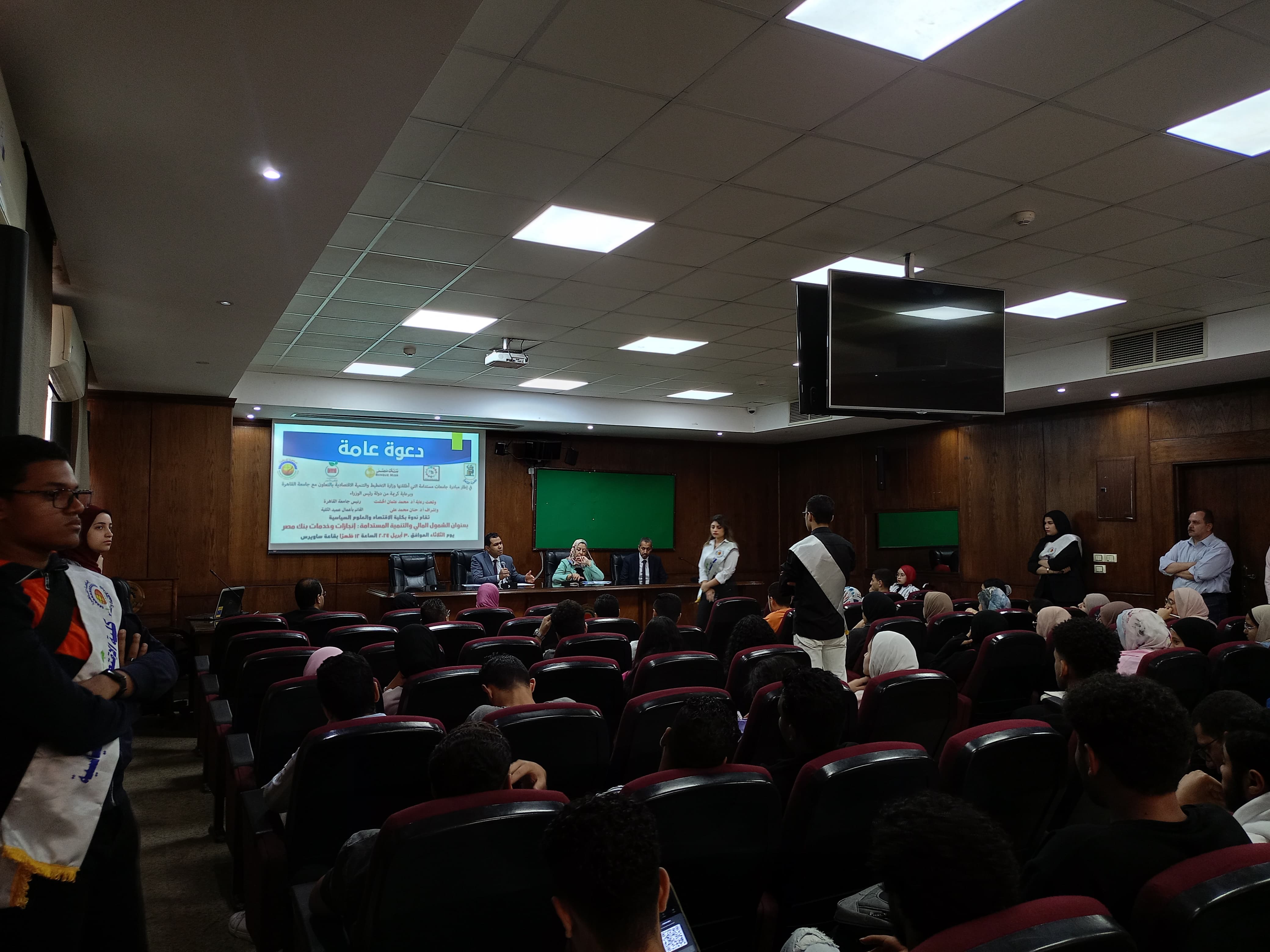
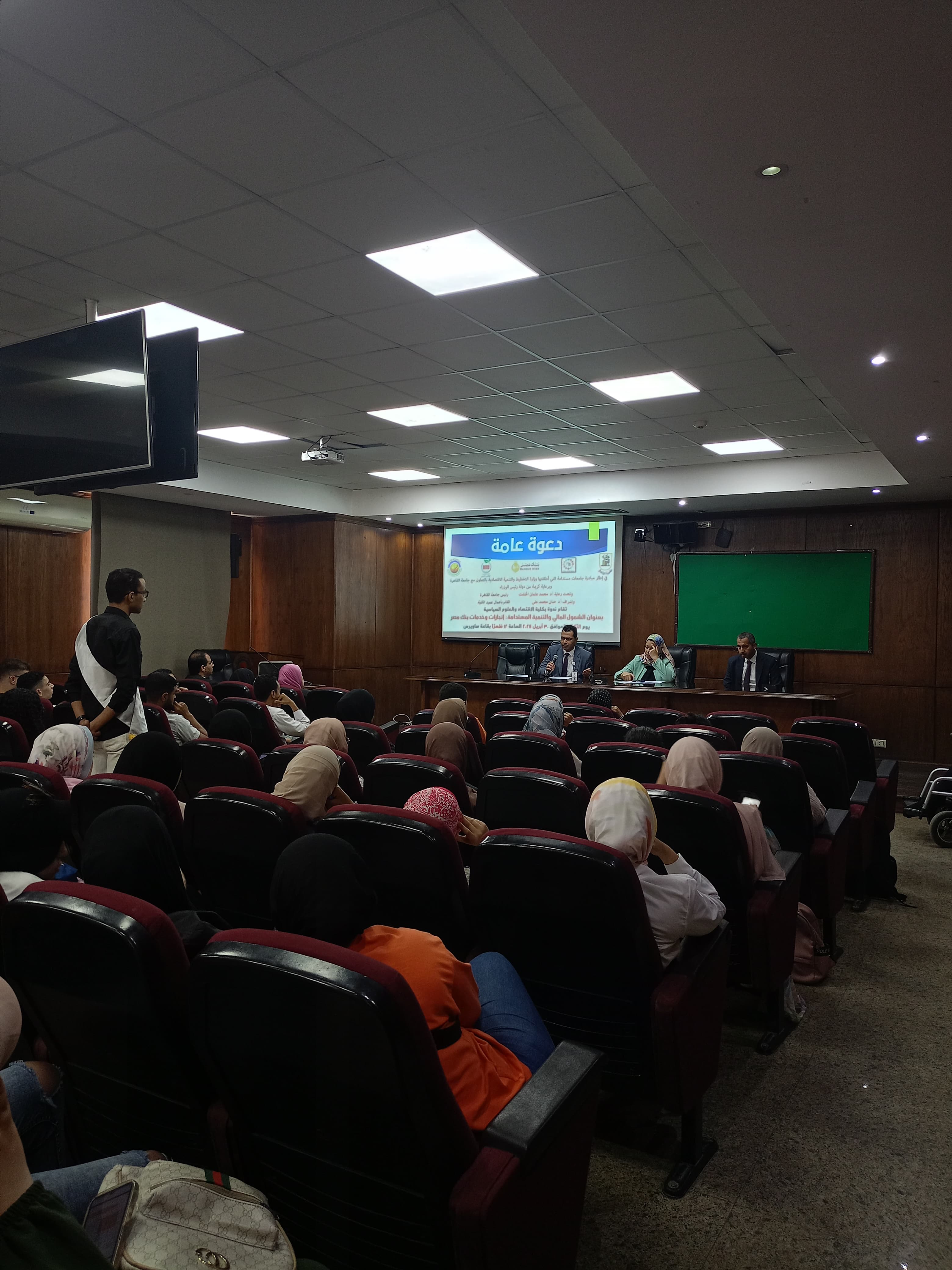
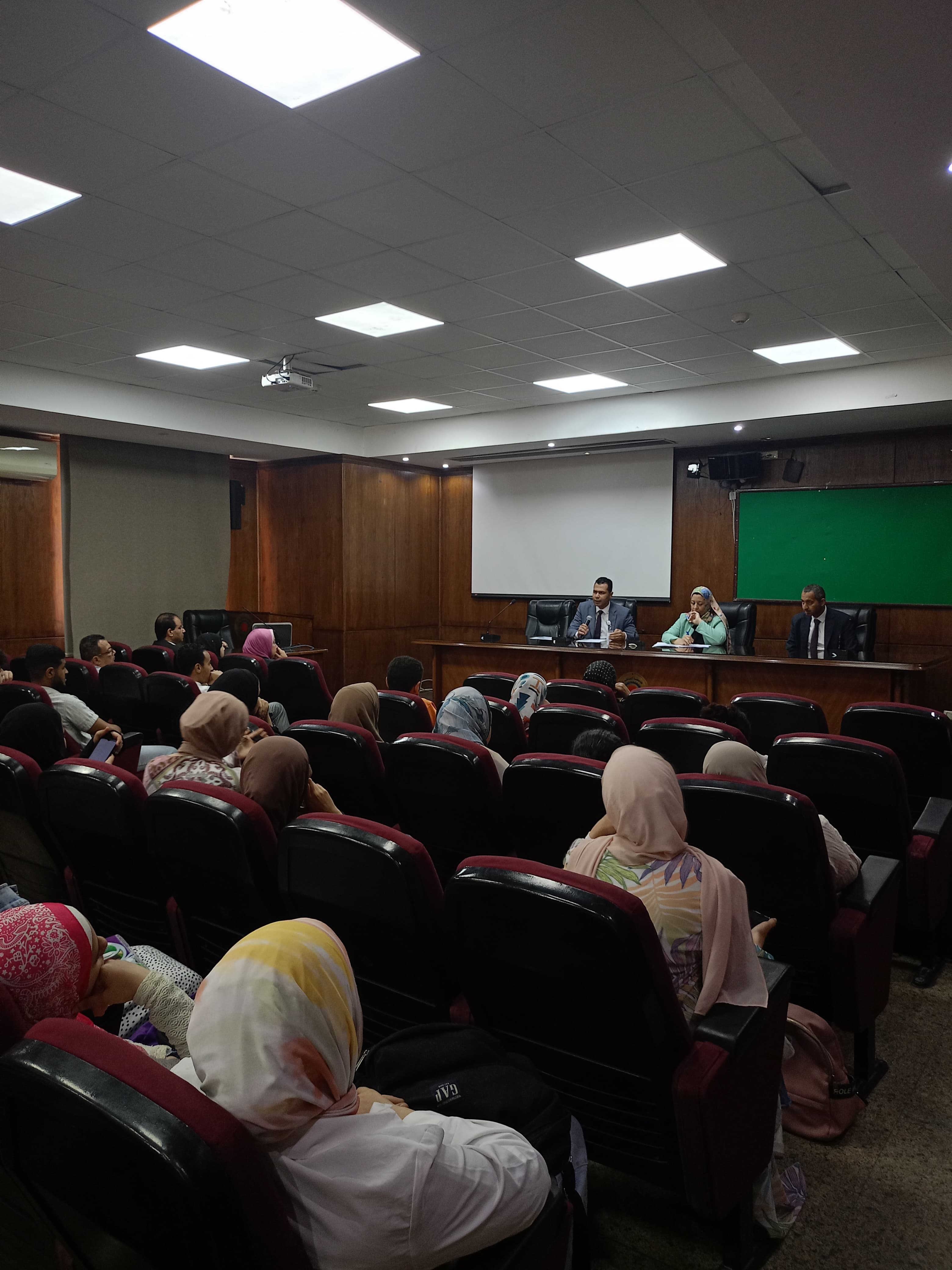
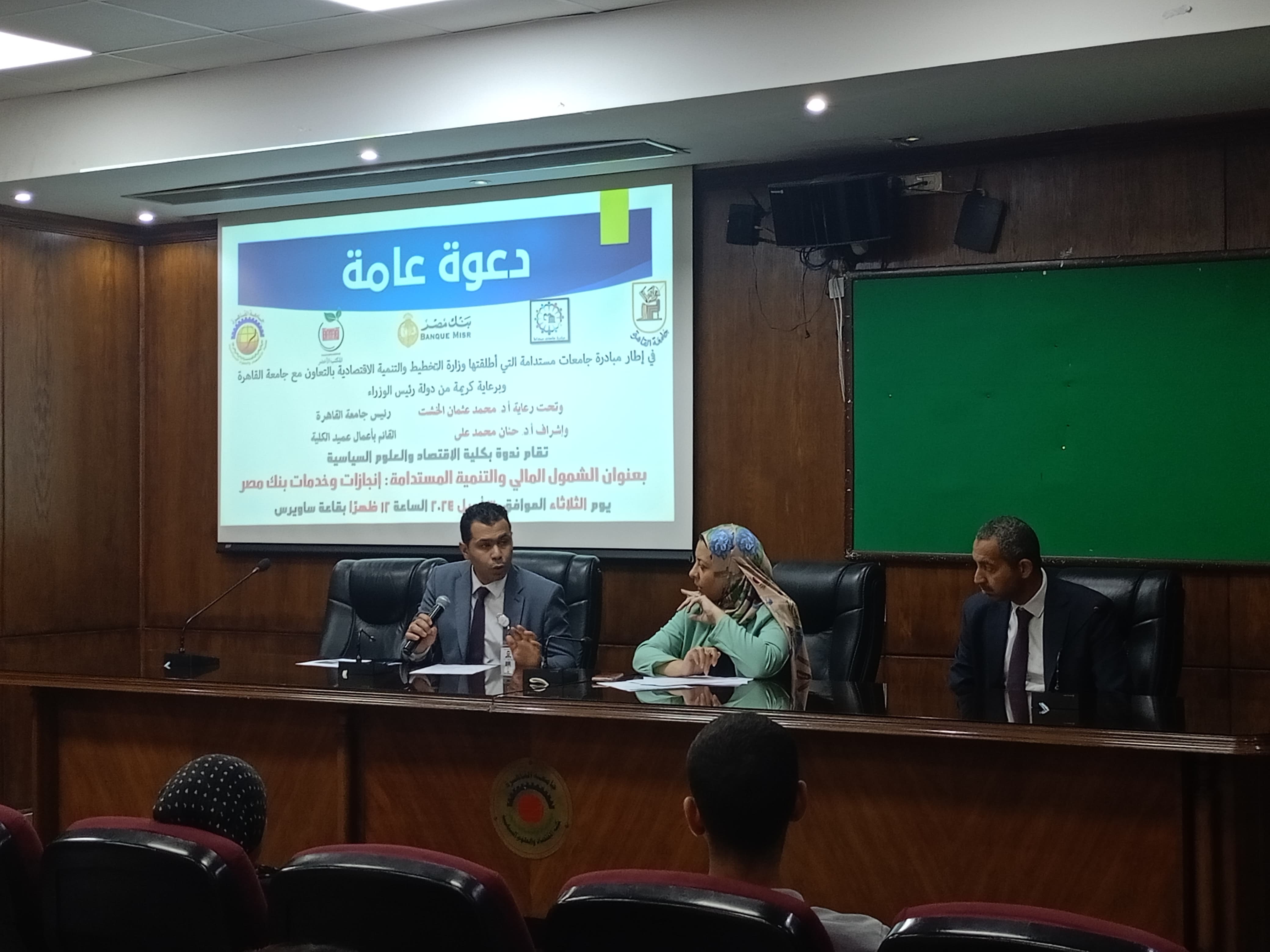
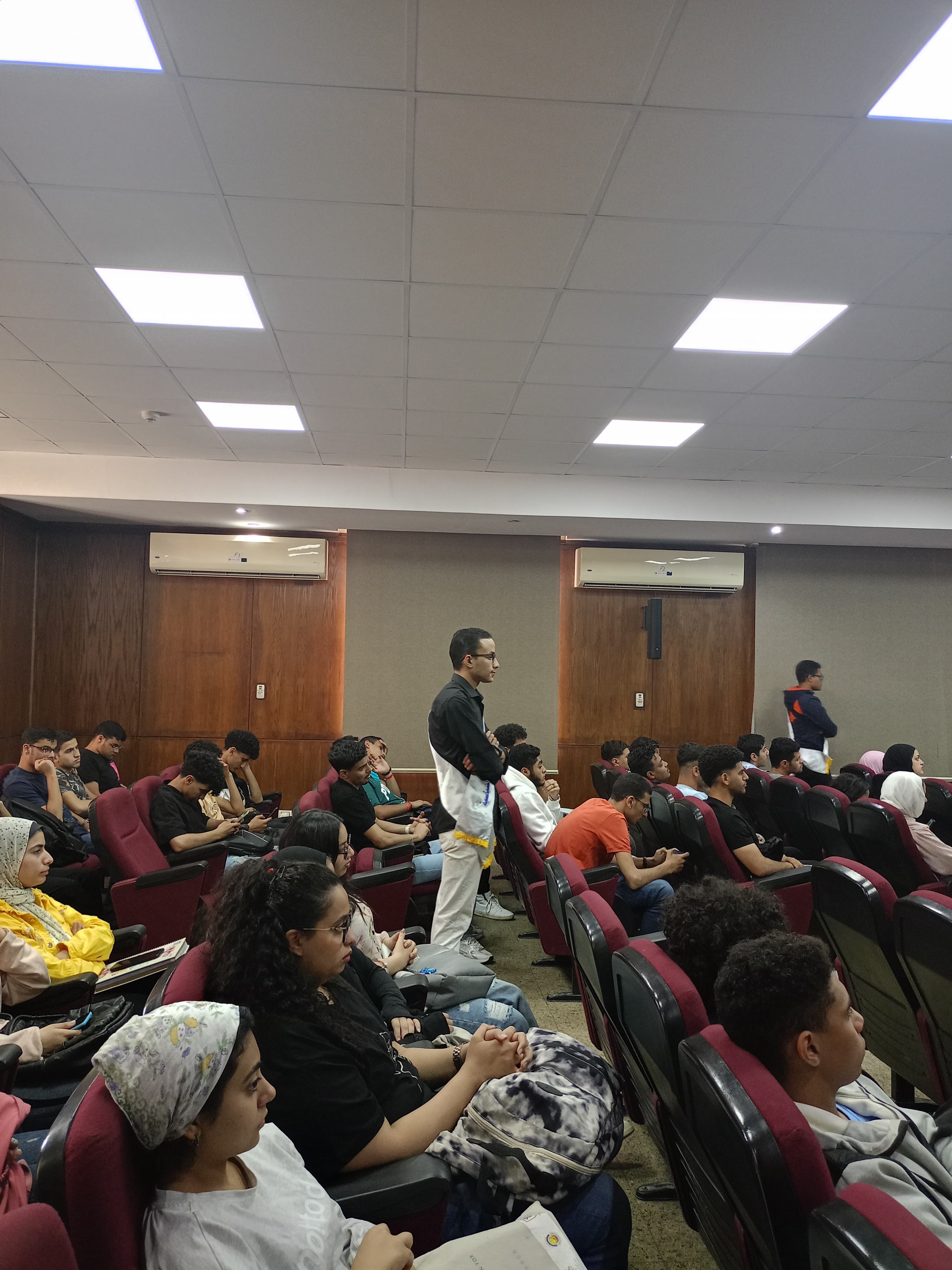
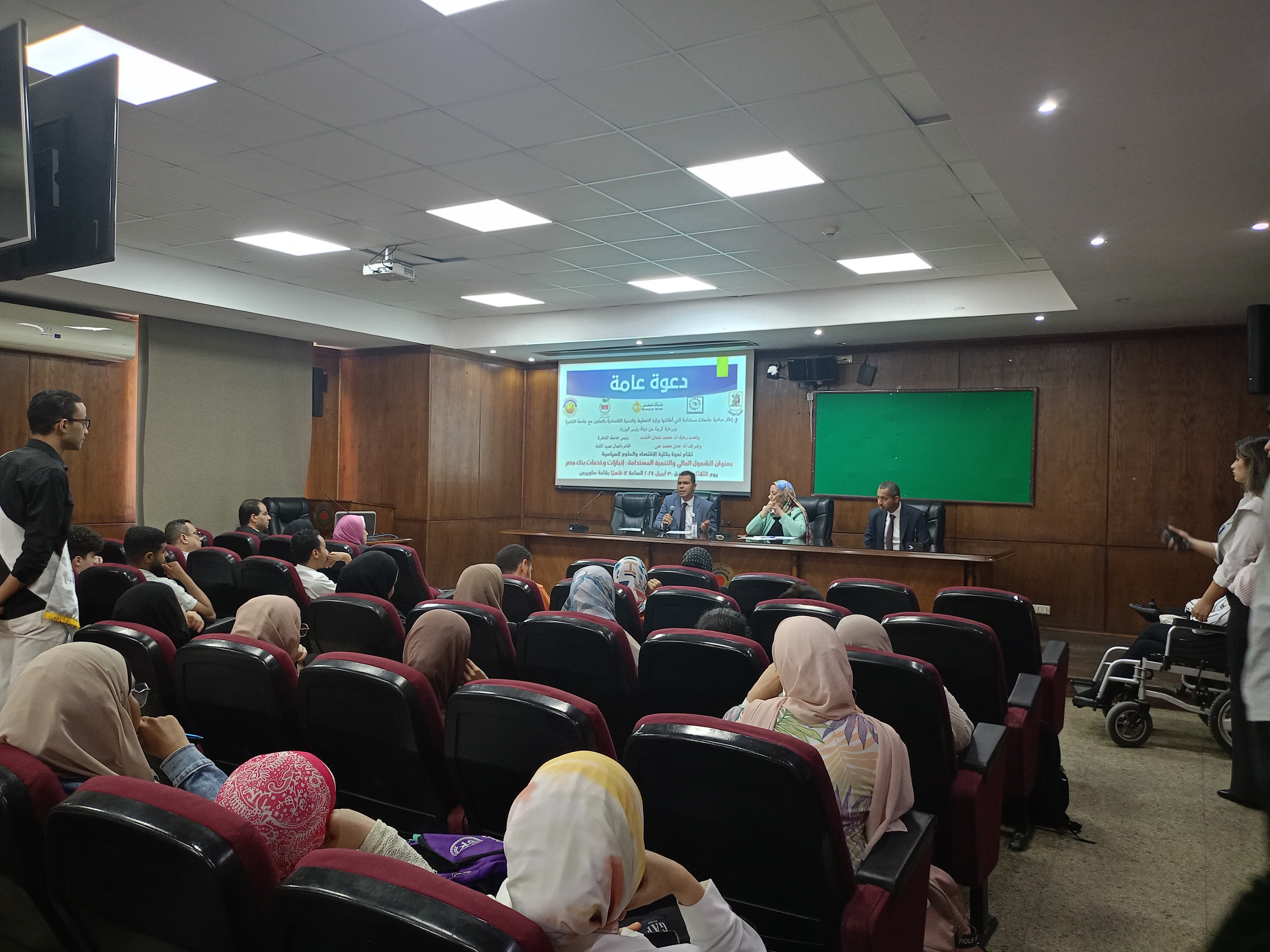
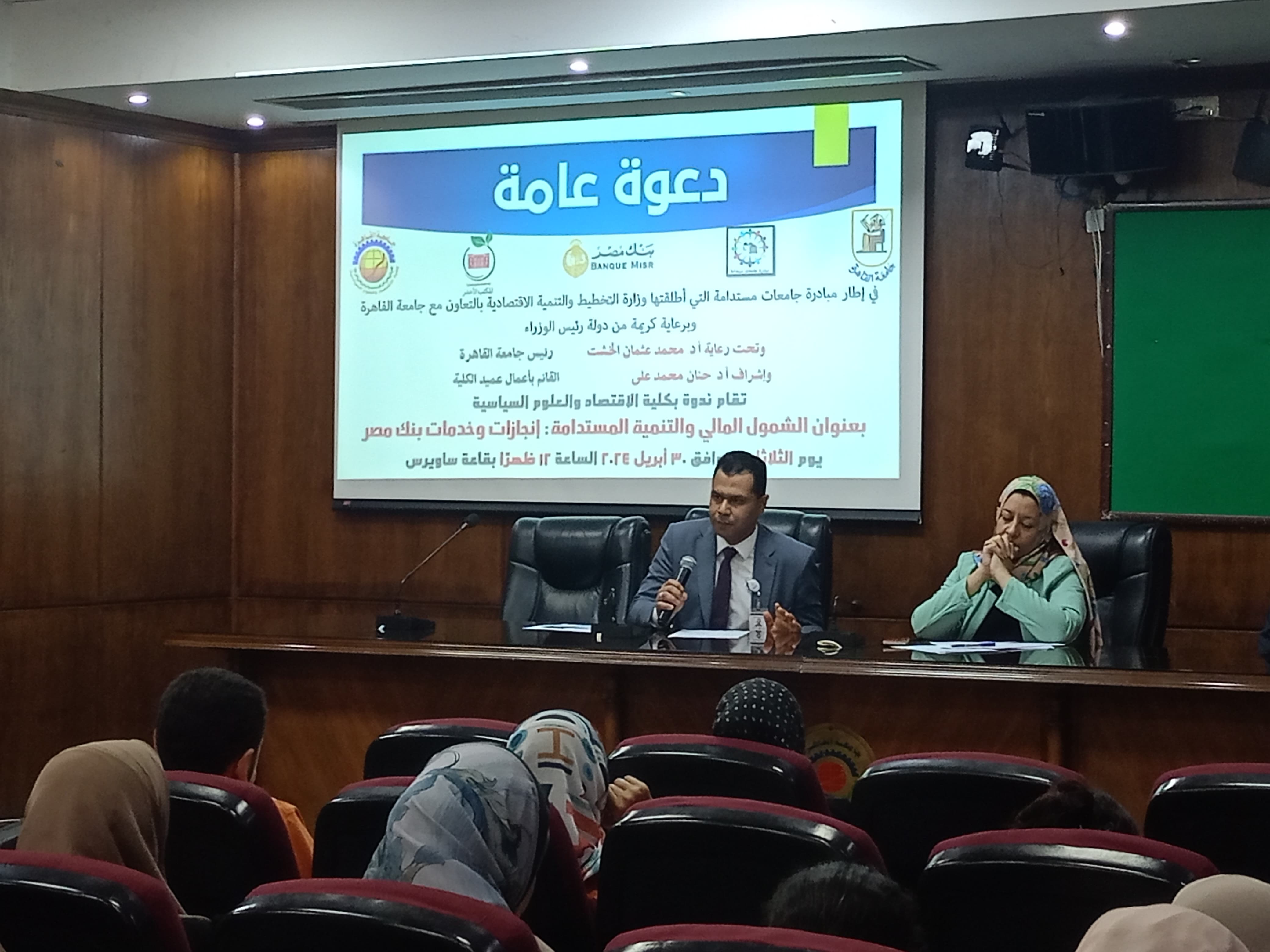
|
